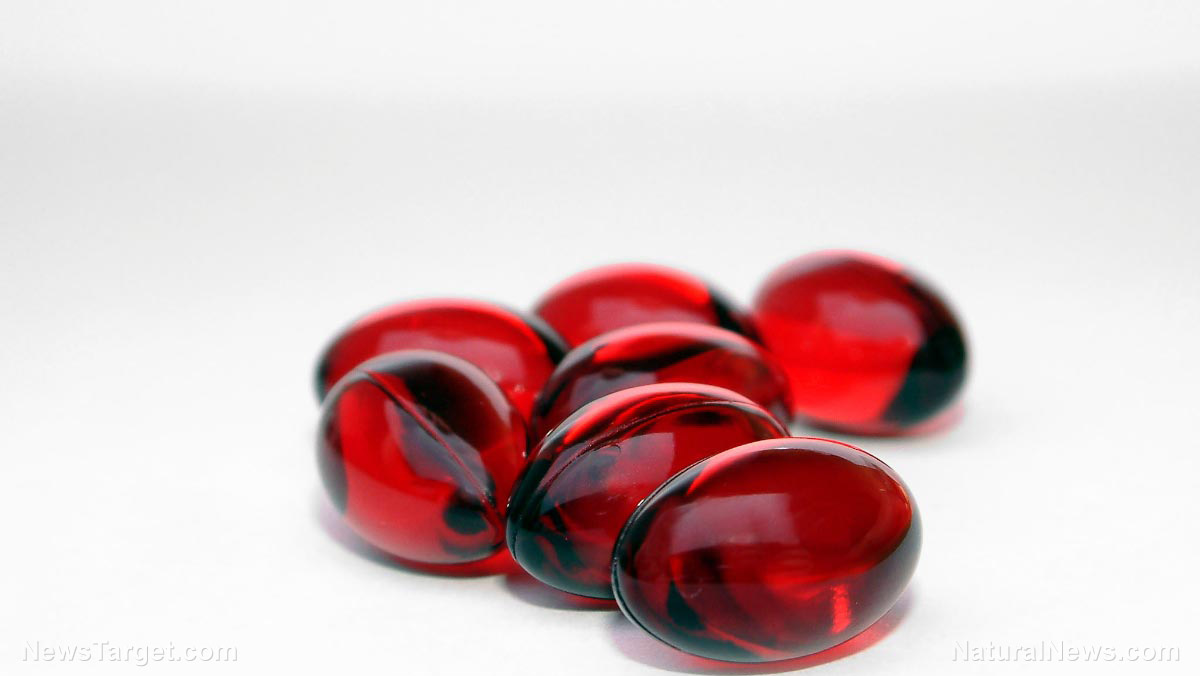Consumption of citrus fruits linked to lower stroke risk
06/10/2022 / By Zoey Sky

Citrus fruits are known for being full of vitamin C and having immune system-boosting properties. According to a study, regular consumption of nutritious citrus fruits may also help reduce stroke risk.
The study was conducted by researchers from the University of East Anglia (UEA) in Norwich, United Kingdom. The study findings showed that eating citrus fruit, especially oranges, “lowers the risk of ischemic stroke significantly.”
For the study, the research team compared the health of adult female volunteers who ate both oranges and grapefruit regularly versus those who did not. The researchers also analyzed the flavonoid content of citrus fruits and how they affected blood vessel health.
Data from earlier studies have revealed that specific orange phytochemicals had protective benefits against intracerebral hemorrhage and significantly improved blood flow in the brain.
In the UEA study, researchers reviewed around 14 years of the Nurse’s Health Study data tracking the health and diets of at least 70,000 women. They assessed correlations between six flavonoid sub-classes from citrus fruits related to risks of hemorrhagic, ischemic or complete stroke.
Based on the findings, the female volunteers who consumed the highest amounts of orange and grapefruit along with juices from these fruits had much better blood circulation. The women also had a 19 percent lowered risk of stroke related to blood clotting compared with the women who didn’t consume as much citrus fruits.
Citrus consumption and reduced stroke risk
The women who ate more citrus fruits showed a substantially reduced risk of stroke and associated risks, reported the researchers.
Other studies of flavonoids in fruits support these results about a reduction in stroke risk. Data suggest that a higher intake of all kinds of fruit has a positive impact on stroke risk and other areas of health.
For example, a 2011 study conducted by researchers from Western University in London, Ontario, revealed that flavonoid intake also helped prevent weight gain.
The study found that nobiletin, a tangerine flavonoid, helped reduce the risk of both Type 2 diabetes and obesity in mice. The mice given the nobiletin flavonoid didn’t develop these health problems while the mice that did not become obese developed Type 2 diabetes and had atherosclerosis and fatty liver issues.
Other health benefits of citrus fruits
According to a 2012 Japanese study, the pulp and juice from satsuma mandarin oranges inhibited tumor growth in colon, lung and tongue cancers.
This is important because vitamin C is a potent antioxidant that can help inhibit free radical damage in the cells. The nobiletin in citrus fruit has also been linked with apoptosis or the programmed cell death of cancer cells.
In another study, scientists from Oregon Health & Science University discovered that there is a link between eye health and the vitamin C found in citrus fruits. According to their data, retinal nerve cells benefited from the compound.
The research team believes that there is a chance that both brain and nervous system health are also positively impacted by vitamin C.
While natural fruit juice is nutritious, consuming whole oranges, grapefruits and other fruits offer amazing health benefits. Whole fruits usually contain more vitamins and nutrients and are lower in sugar and higher in dietary fiber.
Follow a balanced diet to prevent stroke
Making small changes to your eating habits can have a significant difference in your overall health, especially if you are at risk of having a stroke or transient ischemic attack (TIA).
A transient ischemic attack is a stroke that lasts for only several minutes. It happens when the blood supply to part of your brain is briefly blocked.
Symptoms of a TIA are like other stroke symptoms, but it doesn’t last as long. They happen suddenly and may include:
- Confusion and trouble speaking or understanding speech
- Difficulty walking
- Dizziness
- Loss of balance or coordination
- Numbness or weakness, especially on one side of the body
- Trouble seeing in one or both eyes
Eating a healthy, balanced diet will also help lower your blood pressure and control diabetes.
Cholesterol is a fatty substance produced in your body. You can also absorb cholesterol from fatty foods.
If there’s too much cholesterol in your blood, it can cause fatty deposits to build up in your arteries and restrict blood flow. Fortunately, improving your eating habits can help reduce your cholesterol level.
Manage your fat, salt and sugar intake and eat more whole foods like citrus fruits to lower your stroke risk.
Watch the video below to know about nine good reasons to add oranges in your regular diet.
This video is from the Groovy Bee channel on Brighteon.com.
More related stories:
Compounds in citrus fruits and orange juice found to improve gut health.
5 Creative ways to use citrus peels.
Nine reasons to eat an orange (plus a recipe for orange salad dressing).
Sources include:
Submit a correction >>
Tagged Under:
alternative medicine, brain health, citrus fruits, food is medicine, food science, natural medicine, nutrients, organics, prevention, remedies, research, stroke
This article may contain statements that reflect the opinion of the author
RECENT NEWS & ARTICLES
COPYRIGHT © 2017 BRAIN NEWS




















